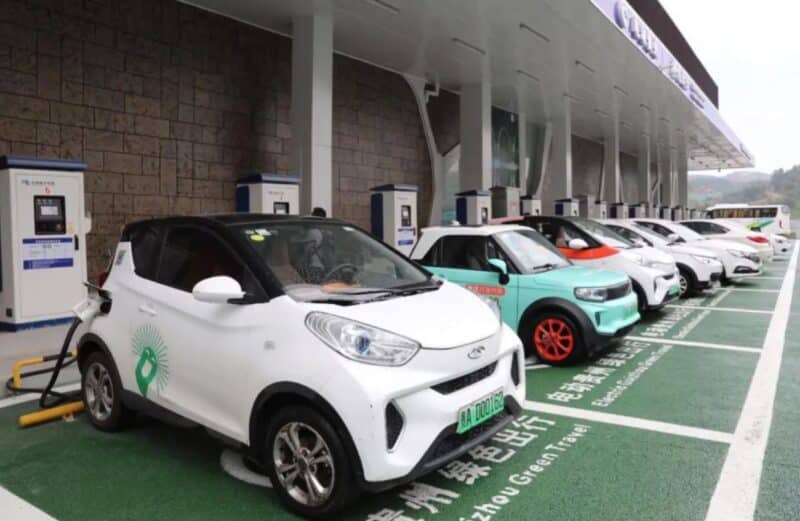In the past two months, more than a dozen car companies in China raised the prices of their electric vehicles. On one hand, the price of key raw materials has risen sharply. On the other hand, the subsidy for new electric vehicles has declined. Unlike the previous two years in which companies have chosen to bear the cost difference after the adjustment of subsidies; this time, most car companies chose to increase prices and some even chose to suspend orders.
Order Suspension

On February 14, ORA announced that its two vehicle, the Black Cat and the White Cat, would stop accepting orders. “We did encounter difficulties,” ORA said in an official statement. “Taking Black Cat as an example, after the price of raw materials rose sharply in 2022, Black Cat’s single loss exceeded 10,000 RMB or 1,580 USD.” Before finding a better solution, ORA can only stop accepting new orders for the Black Cat and White Cat.
Collective Price Increase
Before ORA, companies including Tesla, XPeng, Hozon, GAC Aian, BYD, and Polestar have announced price increases on their electric vehicle models, ranging from a few thousand RMB to tens of thousands of RMB increase.
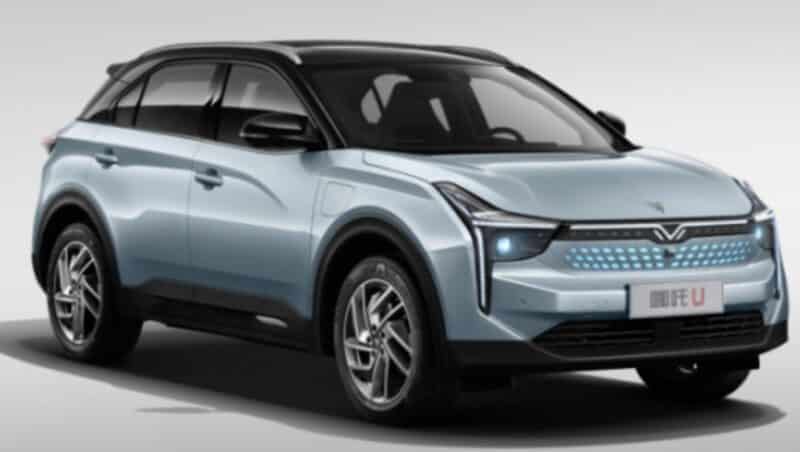
On January 1, Hozon announced that it would increase the price of some U models by 3,000-5,000 RMB or 475-790 USD, and some V models by 2,000 RMB or 310 USD.
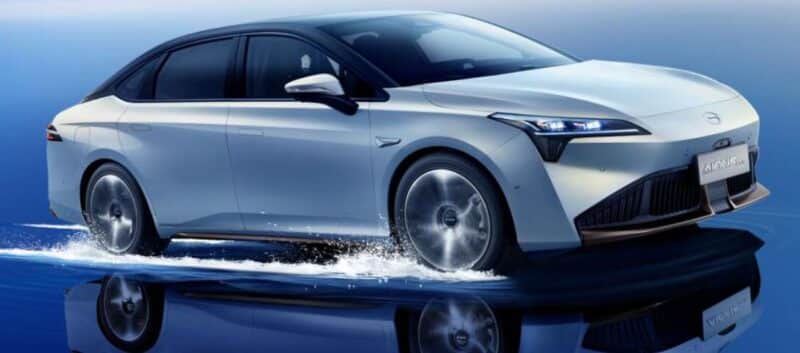
GAC Aian increased the price of the AION LX by 4,000 RMB or 630 USD and the new AION S Plus increased by more than 7,000 RMB or 1,100 USD.
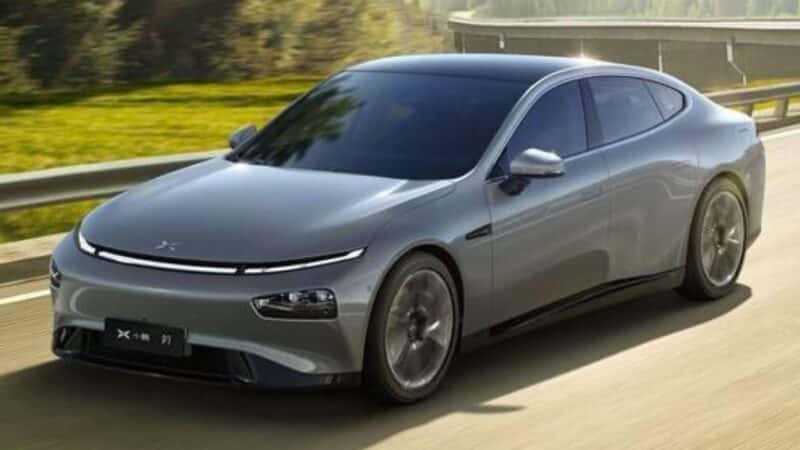
On January 11, XPeng announced a price increase on all models. XPeng’s flagship sedan P7 rose by 4,300-5,900 RMB or 680-930 USD; the P5 series rose by 4,800-5,400 RMB or 760-850 USD; the SUV model G3i rose by 4,800-5,400 RMB or 760-850 USD.
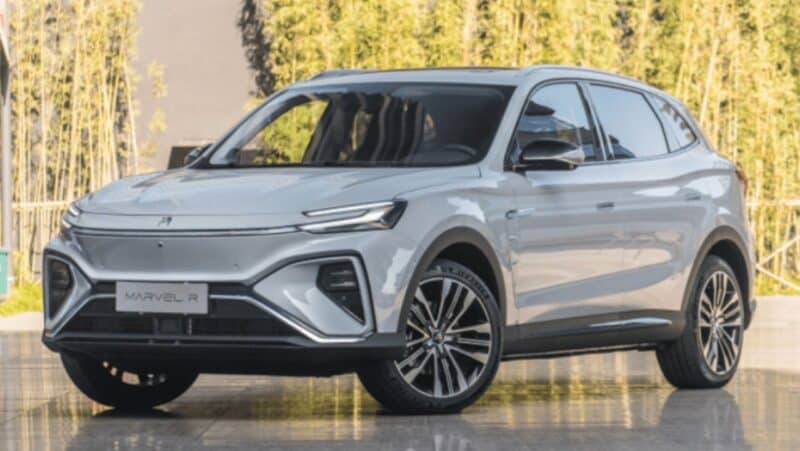
Feifan Auto officially announced in February that it will adjust the prices of some models of its MARVEL R and ER6 models, with an increase of 1,000-2,000 RMB or 150-310 USD.

BYD increased the price of its electric vehicle Dynasty and Ocean series by 1,000-7,000 RMB starting February 1.
Furthermore, Wuling Nano EV’s price has increased by 3,000 RMB or 470 USD. The Zeekr 001 model has risen by 8,000 RMB or 1,260 USD.
Raw Material Price Increase
The sharp rise in the price of raw materials for automobile manufacturing has seriously affected the global automobile enterprises. However, large automobile companies have many vehicle models and can compensate for the cost in various ways. The first to bear the brunt is still electric vehicles. Compared with the beginning of 2021, the average price of mainstream ternary lithium battery cathode materials at the end of January 2022 increased by 108.9%, and the average price of lithium iron phosphate battery cathode materials increased by 182.5%, according to the China Industry Technology Innovation Strategic Alliance for Electric Vehicle (CAEV).
The early price of lithium was only 30,000 RMB per ton or 4,750 USD per ton, and has now risen to 330,000-340,000 RMB per ton. In 2021, the spot price of lithium metal increased by as much as 175% while the average price of battery-grade lithium carbonate increased by more than 418%.
Electrolytic cobalt rose by 1,500 RMB per ton or 230 USD per ton, battery-grade lithium carbonate rose by 5,000 RMB per ton or 790 USD per ton, lithium hydroxide rose by 8,500-10,000 RMB per ton or 1340-1580 USD per ton, according to the latest data from Shanghai Ganglian E-commerce Holdings on February 17.
The average lead time for global chip supply has been extended from 13 weeks in November 2020 to 22.3 weeks in November 2021.
In January this year, the sales of electric vehicles reached 347,000 units, a year-on-year increase of 132%, according to the China Passenger Car Association (CPCA). Judging from the data in January alone, the increase in sales prices did not affect the sales of the top-ranked electric vehicle companies. We’ll continue to keep an eye on this trend.
ABOUT CAEV
CAEV was established on December 2010 under the guidance and support of the Ministry of Science and Technology formed based on the principle of innovation, collaboration, and mutual benefit. It aims to promote the development of electric vehicle technologies.
ABOUT CPCA
CPCA is a non-governmental organization established in 1994 by SAIC Volkswagen and several other sedan manufacturers. Its original name was National Sedan Market Data Fellowship Society. It is not qualified for automotive statistics or authorized by the government to gather and publish automotive statistical data. It is merely a data exchange platform between automotive companies by gathering data from the reports submitted by these companies.



